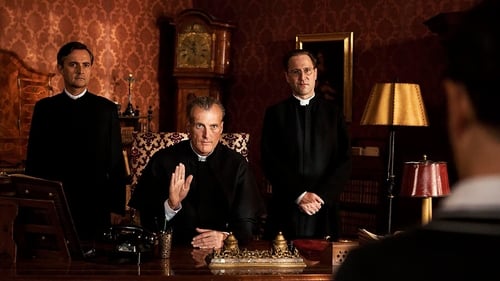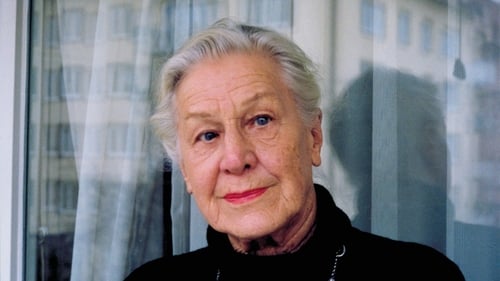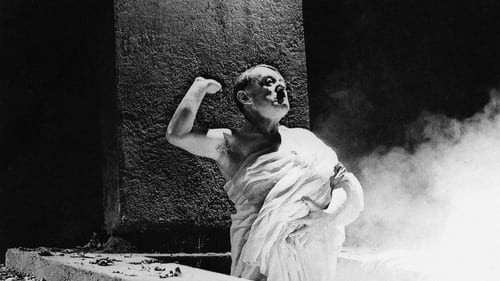André Heller
출생 : 1947-03-22, Vienna, Austria

Director

Inszenierung

Novel
Paul Silberstein, youngest son of an urbane but deeply strange old Austrian dynasty of confectionery millionaires, discovers the power of love and humor - and also his own extraordinary ability to shape his realities. Based on the motives of the short story with the same name by André Heller.

Himself
He's known as "Tyrol's Zappa" and a "real anarchist." Whether folk music, jazz or what's known as serious music, Werner "Preisegott" Pirchner has in a creative way greatly expanded upon the limited acoustic range of his homeland, enriching it with some unfamiliar sounds from around the globe. Whoever comes into contact with him, such as Josef Hader and Tobias Moretti, can sense the power of his music, lets it carry them away, and embraces it wholeheartedly.

himself

Director

Director
Documentarians Andre Heller and Othmar Schmiderer turn their camera on 81-year-old Traudl Junge, who served as Adolf Hitler's secretary from 1942 to 1945, and allow her to speak about her experiences. Junge sheds light on life in the Third Reich and the days leading up to Hitler's death in the famed bunker, where Junge recorded Hitler's last will and testament. Her gripping account is nothing short of mesmerizing.

Screenplay
Documentarians Andre Heller and Othmar Schmiderer turn their camera on 81-year-old Traudl Junge, who served as Adolf Hitler's secretary from 1942 to 1945, and allow her to speak about her experiences. Junge sheds light on life in the Third Reich and the days leading up to Hitler's death in the famed bunker, where Junge recorded Hitler's last will and testament. Her gripping account is nothing short of mesmerizing.

Screenplay

Himself
Jag Mandir is a quiet and often overlooked film in the vast oeuvre of Werner Herzog. Apparently, 20 hours of footage was shot that covered the whole fest and the film hardly presents us a twentieth of that. A native walking into the film in between may well fail to immediately realize that it is his country that is being shown and these are figures from the mythology of various sections of his nation.

Himself
Broomfield's behind-the-scenes document of the making of a musical becomes a ceremonious unmaking-of as egos, budgets and general calamity conspire to ruin the best efforts of all involved in the New York rehearsals for an extravagant, glitzy production.

Lyricist
Gustl Bayrhammer takes audiences big and small on a musical journey to “Wonderland”. There he meets various characters from comic books, fairy tales and legends.

Writer
Gustl Bayrhammer takes audiences big and small on a musical journey to “Wonderland”. There he meets various characters from comic books, fairy tales and legends.

Felix Mendelssohn Bartholdy
"Spring Symphony" is the story of Robert Schumann and Clara Wieck. Both were music entities. Robert Schumann turns out to have been a second tier composer, if that, never rising to the heights of a Beethoven or Mozart. In contrast, Clara Wieck was a master technician in the playing of the piano, a composer (probably not at Schumann's level), and was a child prodigy.

Heller
Young Patricia wanders through a Viennese night full of lust for love, visions of drugs and violence, gleaming frenzy and dark alleys.

Satan
A musician beds down a prostitute he knows is diseased in order to gain inspiration, an act he later believes to have been a tacit pact with Satan

Lejba Sibal

Prolog

Hierlinger
Based on a popular 1931 play, the film tells the fate of a naive young woman named Marianne, who breaks off her reluctant engagement with Oskar the butcher after falling in love with a fop named Alfred who, however, has no serious interest in returning her love. For this error, she must pay bitterly.

himself
Not porno, not underground film, not a good entertainment film, not documentary, not social criticism nor Hollywood boulevard film or horror show: rather a journey into the midst of night, a hell ride to paradise lost, into our inner self. The mystery play of a historical dance of death in the black studio of our phantasy, the ascetic “Trauerarbeit” (toils of mourning) on the end of an epoch, millions of dead. In old times one would have called it an epos, a poem, requiem, oratorio; an attempt to find a new German identity through film. And also about the heritage of Hitler in our present world, something about the infernal victory of quantitative democracy; about the calmness of melancholy and the thesis that Hitler can only be defeated with Richard Wagner.

Entertainer
A young Viennese policeman can not free himself from his mistress and is also extorted over his illegal arms business.

Robert Müller, Vorsitzender des akadem. Vereins
This ethereal, three-hour biopic is the middle film in Hans-Jürgen Syberberg’s “German Trilogy” on the mythological foundations of the Third Reich. By fusing theater, music, and cinema, Syberberg conjures up Karl May (1842-1912), the immensely popular German author, who set many of his adventure novels in an idealized version of the American Wild West. His tales of the cowboy and the Ubermensch alike were beloved by many, including (Our) Hitler, who supposedly ordered his generals to read May works after defeats in the Russian campaign.

Himself

Gustav Wahl














